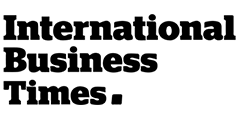Blog
In a world where time is money, efficiency is a prized asset. Automation offers a game-changing solution by taking over repetitive, time-consuming tasks, allowing us to focus on more strategic and creative aspects of our work and lives.

August 14, 2023
Category
Individual
In a world where time is money, efficiency is a prized asset. Automation offers a game-changing solution by taking over repetitive, time-consuming tasks, allowing us to focus on more strategic and creative aspects of our work and lives. From managing emails to handling complex data analysis, automation has the potential to revolutionise productivity.
Understanding automation
Automation involves the use of technology to perform tasks with minimal human intervention. It utilises predefined rules and triggers to execute processes automatically, reducing the need for manual intervention. It can encompass various levels of complexity, from basic actions like scheduling social media posts to intricate workflows involving multiple software systems.
Benefits of automation in productivity
Embracing automation brings forth a myriad of benefits. It eliminates human errors, increases accuracy, and accelerates task completion. By reducing manual labour, it frees up valuable time that can be channelled into more critical endeavours. Moreover, automation enhances consistency, ensures timely execution, and enables multitasking without compromising quality.
Automation tools and technologies
A plethora of automation tools and technologies are available, catering to diverse needs. From task management apps like Trello to marketing automation platforms like HubSpot, businesses and individuals have a wide array of options to choose from. Machine learning and artificial intelligence further amplify the capabilities of automation, enabling systems to learn and adapt over time.
Implementing automation in your workflow
Integrating automation into your workflow requires a systematic approach. Begin by identifying tasks that are repetitive or time-consuming. Then, select appropriate tools and design workflows that align with your objectives. It's essential to strike a balance between automation and manual control to maintain a human touch while reaping the benefits of efficiency.
Industries leveraging automation
Automation transcends industries, impacting sectors such as manufacturing, healthcare, finance, and more. In manufacturing, robots streamline production lines, while in healthcare, automated appointment reminders enhance patient care. Financial institutions use automation for transaction processing and fraud detection, highlighting its versatile applications.
Challenges and considerations
While automation holds immense promise, it's not without challenges. Implementing automation requires an initial investment of time and resources. Ensuring data security and privacy is paramount, especially as automation involves handling sensitive information. Furthermore, the fear of job displacement due to automation is a valid concern that needs to be addressed.
Future of automation
The future of automation is exciting and transformative. As technology advances, automation will become more sophisticated, capable of handling complex decision-making processes. The focus will shift towards collaboration between humans and machines, where automation complements human ingenuity rather than replacing it.
Real-life success stories
Numerous success stories illustrate the power of automation. Companies like Amazon have revolutionised their supply chain management using automation, ensuring quick deliveries and optimal inventory levels. Similarly, digital marketers use automation to target audiences with personalised content, leading to higher engagement and conversion rates.
Balancing human touch with automation
While automation offers efficiency, maintaining a human touch is essential. Certain tasks, like creative brainstorming and building relationships, thrive on human interaction. Striking a balance between automated processes and human expertise ensures a holistic approach to productivity enhancement.
Maximising personal productivity with automation
Automation isn't limited to business settings. Individuals can leverage it to manage personal tasks, such as scheduling appointments, organising emails, and even automating home devices. By offloading routine chores, individuals can channel their energy towards self-improvement and pursuing passions.
Security and data privacy
The seamless integration of automation must be accompanied by robust security measures. As automation involves data sharing and processing, ensuring data privacy and protection is paramount. Implementing encryption, access controls, and regular audits safeguards against breaches and unauthorised access.
The role of AI in automation
Artificial intelligence plays a pivotal role in automation's evolution. AI-driven automation systems can analyse patterns, make intelligent decisions, and adapt to changing circumstances. Machine learning algorithms enable systems to learn from data and continuously optimise processes, leading to increased efficiency.
Impact on job landscape
The fear of automation replacing jobs is not unfounded, but history shows that automation often creates new roles and opportunities. While routine tasks may become automated, the demand for skilled professionals who can design, maintain, and innovate automation systems is on the rise.
Conclusion
In a world where time is our most valuable resource, automation emerges as a powerful ally in the quest for productivity. By harnessing its potential, individuals and businesses can optimise their operations, reduce errors, and achieve more with less effort. However, it's crucial to strike a balance, maintaining the human touch that brings creativity, empathy, and innovation to the forefront.
FAQs
Q: Is automation suitable for small businesses?
Absolutely, automation can benefit businesses of all sizes by boosting efficiency and reducing costs.
Q: Can automation replace human jobs entirely?
While automation can replace certain tasks, it often creates new roles and opportunities, leading to a shift in job roles rather than complete replacement.
Q: How do I choose the right automation tools for my needs?
Assess your specific tasks and requirements, then research and choose tools that align with those needs.
Q: What are the potential risks of relying heavily on automation?
Overdependence on automation without human oversight can lead to errors going unnoticed and a lack of personalised customer interactions.
Q: Will automation eliminate the need for human creativity?
A: No, automation can free up human creativity by handling routine tasks, allowing individuals to focus on innovation and problem-solving.
To find out more about how you can launch your own Digital Agency, please contact a member of our team.
Until next time, take care.
Share this Post






















